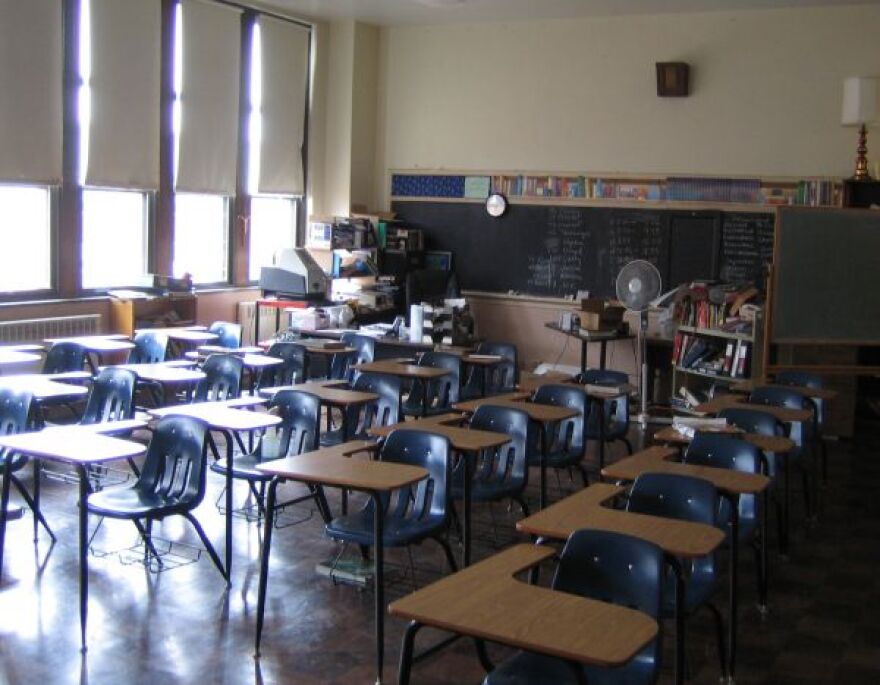Even though the new school year is underway, many school districts in the region are still trying to hire teachers. Regional Superintendent of Education John Meixner said almost every district downstate has struggled to fill vacant teaching positions.
“The applicant pool is very minimal if any,” Meixner said. "That’s what has been stunning. Years ago, a few dozen people would apply for a job. Now, you’re lucky to have a couple, three, if anything.”
At the start of the school year there were three dozen teaching job postings on the website for Regional Office of Education 26, which covers Fulton, Hancock, Schuyler, and McDonough counties.
Meixner described the teaching shortage as "severe" when speaking to school principals from the region this week. He said in some cases, there are job postings that have been online for several months and no one has applied.
Meixner told Tri States Public Radio that most schools have been able to find someone who can teach a class, though they might not be the first choice. He said school districts might move teachers around, find a long-term substitute, or hire a retired teacher back.
“They’re working very hard to make sure licensed individuals in front of kids,” Meixner said.
Meixner is a member of the state organization Illinois Association of Regional Superintendents of Schools, which released a report last fall year documenting the teacher shortage across Illinois. Meixner said it was passed on to state lawmakers to consider.
According to the report, one in eight districts have had to cancel a class or program due to a shortage of teachers.
Superintendents in 56% of the districts surveyed believed that they have a minor problem with teacher shortages. When combined with those who believed they have a serious problem, 78% of district superintendents believed they have some degree of a problem with teacher shortages. Further, 65% believe that they have received significantly fewer applicants than five years ago.
 * screen capture from the Illinois Association of Regional Superintendent of Schools report. http://iarss.org/wp-content/uploads/2018/01/IARSS-Illinois-Educator-Shortage-2017-1.pdf
* screen capture from the Illinois Association of Regional Superintendent of Schools report. http://iarss.org/wp-content/uploads/2018/01/IARSS-Illinois-Educator-Shortage-2017-1.pdf
According to the report, bilingual teachers, Spanish teachers, special education teachers, nurses, and school psychologists are the most difficult positions to fill.
Meixner said the organization is working on a new report this year to identify the academic subject areas with the most openings. That information will be given to higher education institutions working to meet job market demands.
He said a number of issues contribute to teacher shortages in the state and nationally. He told Tri States Public Radio that for one, the overall narrative in teaching has not been positive. He said the compensation and benefits structure is not appealing. Neither is the pension requirement that teachers have to work until 67 to be full vested.
But Meixner said there’s not just a teacher shortage. School districts in this region are also in need of more paraprofessionals, substitute teachers, and bus drivers.







